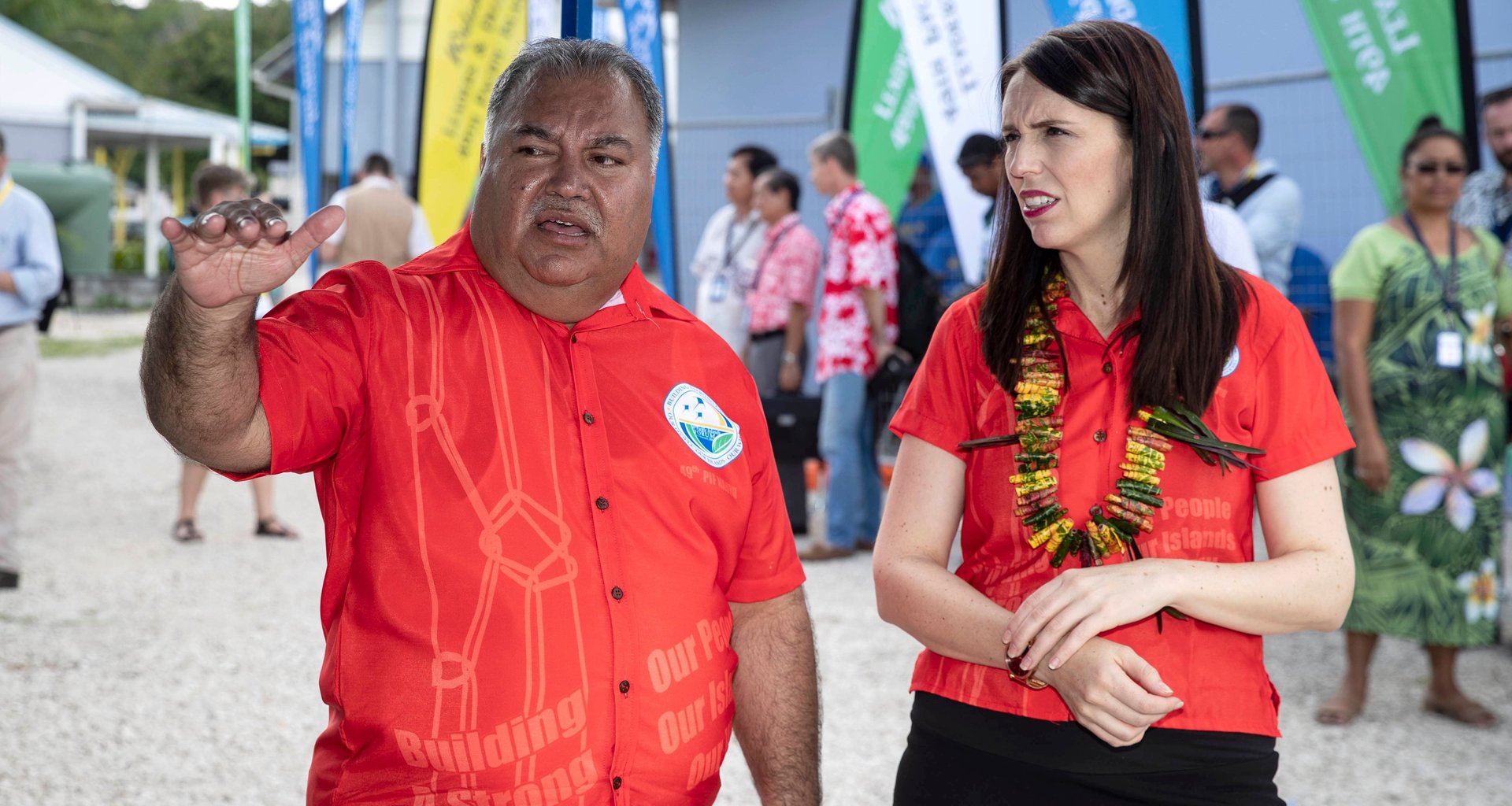A Pacific island nation of 11,000 people is picking a fight with China
Nauru, the country that until now was best known as the site of one of Australia’s notorious offshore detention centers for asylum seekers, is now in the news for turning a regional gathering into a diplomatic ruckus involving Beijing.


Nauru, the country that until now was best known as the site of one of Australia’s notorious offshore detention centers for asylum seekers, is now in the news for turning a regional gathering into a diplomatic ruckus involving Beijing.
The country, with a size of just 21 sq km, is hosting the Pacific Islands Forums (PIF), which ends today (Sept. 6), and includes delegates from 18 nations in the region as well as countries such as Australia, the US, and China.
Earlier in the week, Nauru refused to grant entry to the Chinese delegation on their diplomatic passports, and insisted the delegates use their normal passports. That didn’t just anger China—Samoa reportedly threatened to boycott the forum over Nauru’s shenanigans and warned that other countries could do the same. Nauru eventually agreed to stamp the Chinese delegates’ visa-acceptance letters rather than their passports.
Later, Nauru president Baron Waqa refused to let China’s special envoy to the forum speak at an event on climate change. The envoy and other Chinese delegates stormed out afterward. Waqa justified his actions by accusing the Chinese delegate of trying to speak ahead of the Tuvalu prime minister, and called him “insolent.” He also said, “Maybe because he was from a big country he wanted to bully us.” A video posted by Fijian publication Islands Business documented the incident.
At a press conference yesterday (Sept. 5), Waqa doubled down on his criticism of China, calling the delegate a “nobody.” He also called for China to apologize for the incident and even threatened to take it to the United Nations. China’s foreign ministry said at a media briefing yesterday that Nauru had “staged a despicable farce” and was “making a fuss out of nothing.”
Nauru and Tuvalu have one major thing in common—they both recognize the government in Taipei instead of Beijing. As Taiwan loses diplomatic allies around the world one by one (with only one remaining in Africa), it still counts six friends in the Pacific. Taiwan also led a delegation to the gathering, and announced the creation of a $2 million medical fund available to all members of the PIF.
In recent years, however, China has ramped up its investment in the region, increasingly competing against not just Taiwan but also regional superpower Australia in terms of influence—although Australia remains the biggest aid donor to the Pacific by a long way, according to data compiled by the Sydney-based think tank Lowy Institute. China’s influence, however, typically takes the form of investment in large infrastructure projects, such as a cruise-ship wharf in Tonga and schools in Fiji. Australia recently pushed back against China in the Pacific by agreeing to build a 4,000-km (2,500-mile) underwater internet link to the Solomon Islands, a project originally slated for Chinese telecoms equipment maker Huawei. Australian prime minister Scott Morrison’s absence from the PIF, however, has raised questions over his new administration’s commitment to the region.
China’s foreign ministry also said that Nauru should recognize only one China rather than “one China, one Taiwan,” and that the island nation should “have a clear grasp of the overarching trend, correct its mistakes and stop working against the trend of the times.” If Beijing succeeds in turning Nauru, it wouldn’t be the first time—the country broke ties with Taiwan in 2002 for Beijing, only to return to Taiwan’s fold in 2005.